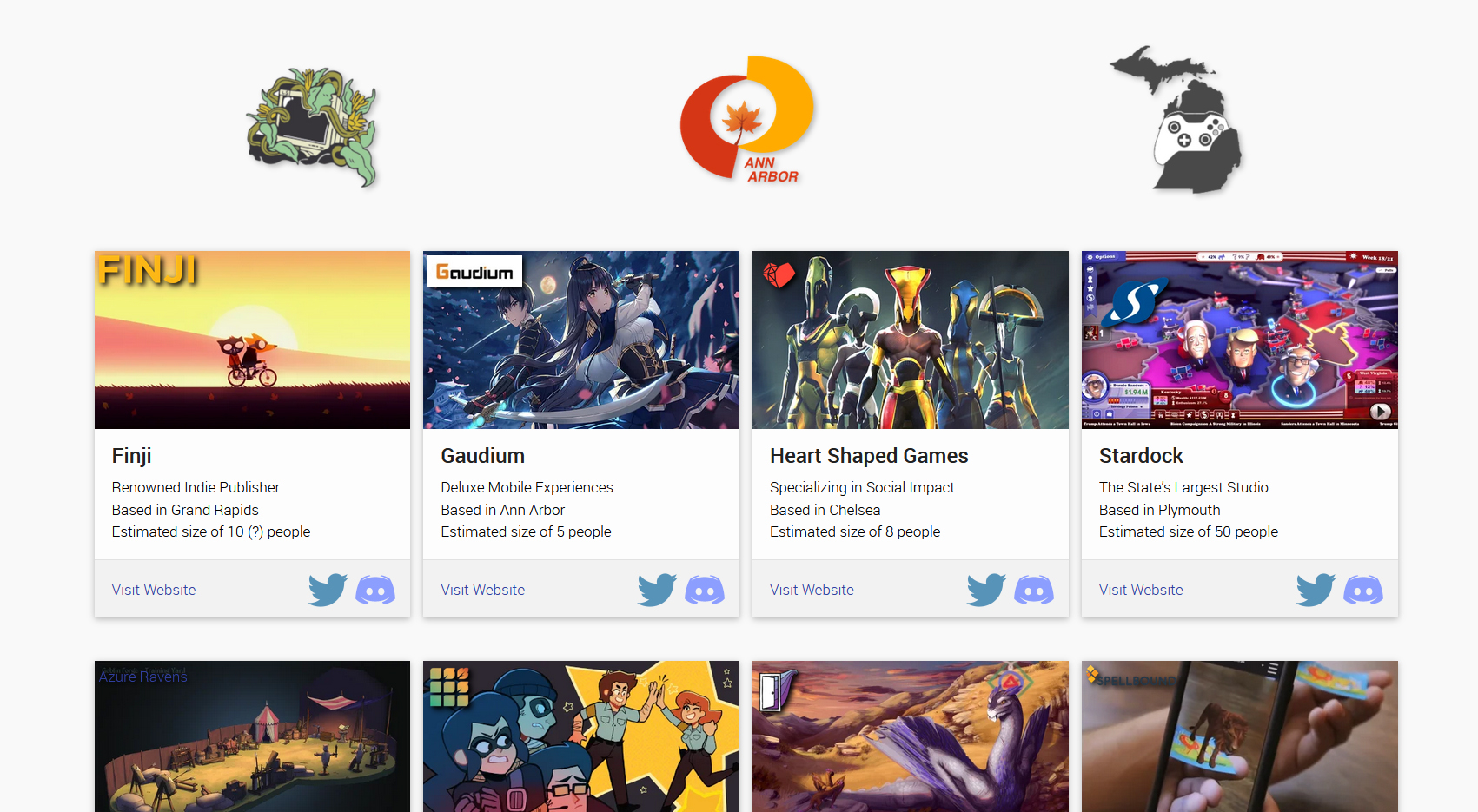New database sheds light on Michigan’s videogame boom
The Michigan Game Studios database, developed by lecturer Austin Yarger, helps organize the state’s rapidly growing scene.

 Enlarge
Enlarge
A new database of Michigan-based videogame and extended reality (XR) developers is helping to highlight and organize the state’s rapidly growing scene. Built and maintained by CSE lecturer Austin Yarger, the Michigan Game Studios database collects data on over 65 active videogame and XR development studios in the state.
The database is the first tool of its kind to bring Michigan’s game dev scene together in one place, Yarger says, and it’s already finding use among the public from Eastern Michigan University and Michigan Tech University faculty and students. He hopes it can be of use to the many audiences interested in the industry – students seeking work in the state, studios looking to expand their network, and researchers aiming to understand the growth of interactive technology in Michigan. Additional features are planned to make the website more searchable, including sorting and tagging functionality that better organizes studios and helps visitors understand their nature, specialties, and unique qualities.
“We’re seeing data that suggests game and XR development in the state of Michigan is on the precipice of creating a positive feedback loop and going exponential,” Yarger says. The state has gone from around a dozen young, small studios to over 60 in a matter of years, with several on their second or third product release. Many of these studios hire local interns and participate in incubators like Ann Arbor SPARK. “University of Michigan students now have access to in-state opportunities that didn’t exist previously.”
Yarger leads instruction of EECS 494: Introduction to Video Game Development and is the President of Arbor Interactive, a local game and software development firm. These activities have helped him stay plugged in to the community. He began work on the database after accruing significant data from his years interacting with Michigan-based studios, with help from U-M SMTD business systems analyst Michael Klamerus.
Beyond helping to organize and boost the scene’s visibility, Yarger has made his own contributions to the industry’s growth. Working with Margarita Hernandez, Director of Entrepreneurial Services at Ann Arbor SPARK, he recently launched the Ann Arbor SPARK XR Internship Program to better connect University of Michigan students with the growing Ann Arbor and Ypsilanti gamedev industry. The program partially funds startups in the area to hire U-M students for paid, 18-week internships.
“This is a tremendous win for our gamedev students, many of whom wish to stay local and gain XR knowledge,” Yarger says. “It is also a huge win for our local startups who receive subsidized, world-class talent for 10-20 hours weekly.”
The most recent semester saw six students receive local XR internships.
Many of Yarger’s students also go on to seek work in the Michigan game dev scene. In the past year, U-M graduates have joined local companies including Spellbound AR, Brand XR, Nochi Studios, Heart-Shaped Games, Abaca Games, Perform 3-D LLC, Stardock, and Dreaming Door Studios, all local to Ann Arbor, Chelsea, Detroit, and the surrounding area.
Yarger sees all of these developments as signs of growing momentum for videogame and XR development in Michigan.
“The Michigan Game Studios database is simply the latest achievement of an ever-improving, ever-more-optimistic, statewide game development scene,” he says, “and one that looks to be impactful for our University’s growing gamedev and XR community.”
 MENU
MENU 
